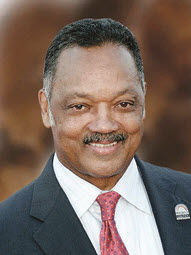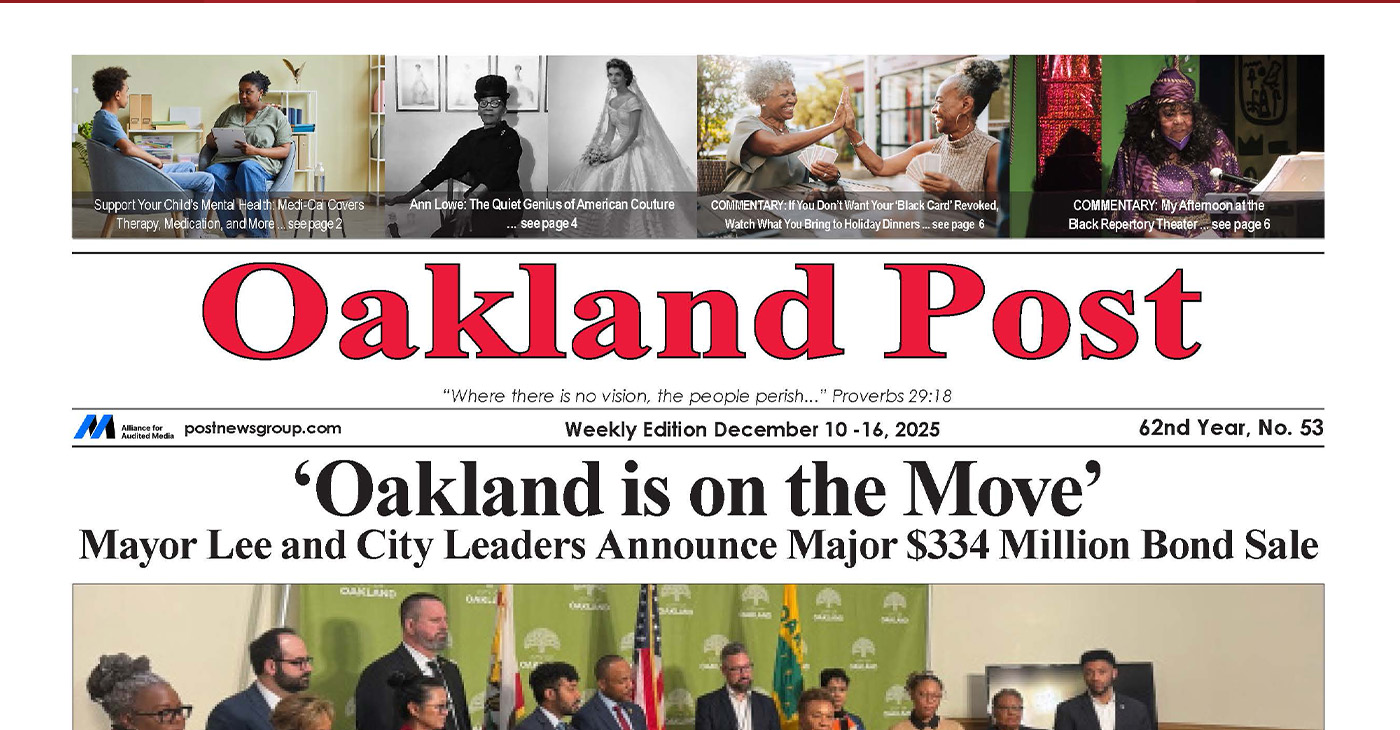Opinion
Opinion: ‘Equal Pay, Equal Pay, Equal Pay’

As the exhausted and thrilled U.S. women’s soccer team celebrated its victory in the finals of the 2019 Women’s World Cup, the cheers of the crowd in the Stade of Lyon soon turned into a chant: “Equal Pay, Equal Pay, Equal Pay.”
Even as they fought their way to the fourth U.S. Women World Cup championship, the U.S. team was waging a battle — in the court of public opinion and the courts of law — for equal treatment in wages, working conditions and investment in the women’s game. And if there is any justice or common sense in the team’s employer, U.S. Soccer, they will be as victorious in the quest for equal pay as they were in their quest for the World Cup.
These are truly American champions. It took immense courage — and no small amount of moxie — to file a class-action lawsuit — joined by all 28 members of the team — alleging gender discrimination by their employer only 93 days before their opening match in the World Cup. This only added immensely to the pressure on them to succeed on the field.
They would be playing for their country, for themselves, but also for all those who will come after them.
One of their leaders — Megan Rapinoe — won the “golden boot” as the top scorer in the World Cup, as well as the Most Valuable Player Award. She accomplished this even while expressing her own values. Trump criticized her for deciding not to sing the national anthem. She announced that she wasn’t interested in going to the White House. Her lavender hair symbolized her celebration of LGBTQ rights.
She naturally became a target of some on the right. She dismissed charges that she was unAmerican: “I’m particularly uniquely and very deeply American. If we want to talk about the ideals we stand for, the song and the anthem, and what we were founded on, I think I’m extremely American.”
She surely got that right. She also had the unified support of her teammates, who praised her as a “warrior” on and off the field, calling it a privilege to be her teammate.
As Christen Press put it, “It’s been beautiful to see her fearlessness as we get to the highest level and the highest stages, that she doesn’t back away, she doesn’t shy, but the opposite: She gets even bigger.”
As did the entire U.S. women’s team. Inspired by the example set by Billie Jean King and Venus Williams in women’s tennis, they took on their employers, criticized FIFA for its unequal treatment of the women’s game, and stood up for equal rights, waging a fight that would benefit their successors if not them.
As Alex Morgan, one of the team’s biggest stars stated, “My hope is that we have equality within football in my career, but I think ultimately it would be good in my lifetime. Even if I don’t reap the benefits, my hope is that the next generation’s sole focus is what it’s meant to be: And that is to play football.”
On Wednesday, the champions were celebrated with a classic Manhattan tickertape parade through the “canyon of heroes” on Broadway. The cheers were deafening; confetti filled the air. Lavender hairdos were seen throughout the crowd. And once more the chant began: “equal pay, equal pay, equal pay.”
Let us all pay tribute to the skill, the courage and the grit of these remarkable young women. They won the cup, even as they waged the fight for justice. They have inspired an entire generation of youngsters who watched their epic play on the field. They have earned the respect of their peers across the world.
Remarkably, the Dutch team posted its own tribute video to the American women before the final game, stating, “You showed us where dedication and ambition can bring you.”
Inspired by the Americans, the level of play is rising across Europe and across the world. And now we must all support them to ensure that they gain justice at home even as they have gained victory abroad.
Activism
Oakland Post: Week of December 17 – 23, 2025
The printed Weekly Edition of the Oakland Post: Week of – December 17 – 23, 2025

To enlarge your view of this issue, use the slider, magnifying glass icon or full page icon in the lower right corner of the browser window.
Advice
COMMENTARY: If You Don’t Want Your ‘Black Card’ Revoked, Watch What You Bring to Holiday Dinners
From Thanksgiving to Christmas to New Year’s Day, whether it’s the dining room table or the bid whist (Spades? Uno, anyone?) table, your card may be in danger.

By Wanda Ravernell
Post Staff
From the fourth week of November to the first week in January, if you are of African descent, but particularly African American, certain violations of cultural etiquette will get your ‘Black card’ revoked.
From Thanksgiving to Christmas to New Year’s Day, whether it’s the dining room table or the bid whist (Spades? Uno, anyone?) table, your card may be in danger.
It could take until Super Bowl Sunday for reinstatement.
I don’t know much about the card table, but for years I was on probation by the ‘Aunties,’ the givers and takers of Black cards.
How I Got into Trouble
It was 1970-something and I was influenced by the health food movement that emerged from the hippie era. A vegetarian (which was then considered sacrilegious by most Black people I knew) prepared me a simple meal: grated cheese over steamed broccoli, lentils, and brown rice.
I introduced the broccoli dish at the Friday night supper with my aunt and grandfather. She pronounced the bright green broccoli undone, but she ate it. (I did not, of course, try brown rice on them.)
I knew that I would be allowed back in the kitchen when she attempted the dish, but the broccoli had been cooked to death. (Y’all remember when ALL vegetables, not just greens, were cooked to mush?)
My Black card, which had been revoked was then reattained because they ate what I prepared and imitated it.
Over the decades, various transgressions have become normalized. I remember when having a smoked turkey neck instead of a ham hock in collard greens was greeted with mumblings and murmurings at both the dining room and card tables. Then came vegan versions with just olive oil (What? No Crisco? No bacon, at least?) and garlic. And now my husband stir fries his collards in a wok.
But No Matter How Things Have Changed…
At holiday meals, there are assigned tasks. Uncle Jack chopped raw onions when needed. Uncle Buddy made the fruit salad for Easter. My mother brought the greens in winter, macaroni salad in summer. Aunt Deanie did the macaroni and cheese, and the great aunts, my deceased grandmother’s sisters, oversaw the preparation of the roast beef, turkey, and ham. My father, if he were present, did the carving.
These designations/assignments were binding agreements that could stand up in a court of law. Do not violate the law of assignments by bringing some other version of a tried-and-true dish, even if you call it a new ‘cheese and noodle item’ to ‘try out.’ The auntie lawgivers know what you are trying to do. It’s called a menu coup d’état, and they are not having it.
The time for experiments is in your own home: your spouse and kids are the Guinea pigs.
My mother’s variation of a classic that I detested from that Sunday to the present was adding crushed pineapple to mashed sweet potatoes. A relative stops by, tries it, and then it can be introduced as an add-on to the standard holiday menu.
My Aunt Vivian’s concoctions from Good Housekeeping or Ladies’ Home Journal magazine also made it to the Black people’s tables all over the country in the form of a green bean casserole.
What Not to Do and How Did It Cross Your Mind?
People are, of all things holy, preparing mac ‘n’ cheese with so much sugar it tastes like custard with noodles in it.
Also showing up in the wrong places: raisins. Raisins have been reported in the stuffing (makes no sense unless it’s in a ‘sweet meats’ dish), in a pan of corn bread, and – heresy in the Black kitchen – the MAC ‘n’ CHEESE.
These are not mere allegations: There is photographic evidence of these Black card violations, but I don’t want to defame witnesses who remained present at the scene of the crimes.
The cook – bless his/her heart – was probably well-meaning, if ignorant. Maybe they got the idea from a social media influencer, much like Aunt Viv got recipes from magazines.
Thankfully, a long-winded blessing of the food at the table can give the wary attendee time to locate the oddity’s place on the table and plan accordingly.
But who knows? Innovation always prevails, for, as the old folks say, ‘waste makes want.’ What if the leftovers were cut up, dipped in breadcrumbs and deep fried? The next day, that dish might make it to the TV tray by the card table.
An older cousin – on her way to being an Auntie – in her bonnet, leggings, T-shirt, and bunny slippers and too tired to object, might try it and like it….
And if she ‘rubs your head’ after eating it, the new dish might be a winner and (Whew!) everybody, thanks God, keeps their Black cards.
Until the next time.
Activism
Oakland Post: Week of December 10 – 16, 2025
The printed Weekly Edition of the Oakland Post: Week of – December 10 – 16, 2025

To enlarge your view of this issue, use the slider, magnifying glass icon or full page icon in the lower right corner of the browser window.
-

 #NNPA BlackPress3 weeks ago
#NNPA BlackPress3 weeks agoLIHEAP Funds Released After Weeks of Delay as States and the District Rush to Protect Households from the Cold
-

 Alameda County3 weeks ago
Alameda County3 weeks agoSeth Curry Makes Impressive Debut with the Golden State Warriors
-

 Activism4 weeks ago
Activism4 weeks agoOakland Post: Week of November 26 – December 2, 2025
-

 #NNPA BlackPress3 weeks ago
#NNPA BlackPress3 weeks agoSeven Steps to Help Your Child Build Meaningful Connections
-

 #NNPA BlackPress3 weeks ago
#NNPA BlackPress3 weeks agoSeven Steps to Help Your Child Build Meaningful Connections
-

 #NNPA BlackPress3 weeks ago
#NNPA BlackPress3 weeks agoTrinidad and Tobago – Prime Minister Confirms U.S. Marines Working on Tobago Radar System
-

 #NNPA BlackPress3 weeks ago
#NNPA BlackPress3 weeks agoThanksgiving Celebrated Across the Tri-State
-

 #NNPA BlackPress3 weeks ago
#NNPA BlackPress3 weeks agoTeens Reject Today’s News as Trump Intensifies His Assault on the Press









































